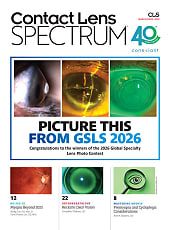
Nebraska’s state legislature heard testimony in January on a bill that, if passed, would authorize optometrists to perform selective laser trabeculoplasty (SLT).
According to the news update published to the Nebraska government’s website (at bit.ly/NESLTbill ), the proposed bill would improve access to SLT, as the procedure can only be performed in the state by ophthalmologists and due to this is currently only widely available in the Omaha metropolitan area and seven other Nebraska cities.
The American Optometric Association (AOA), in comments provided by AOA president Ronald Benner, OD, supports such laws expanding optometry services. Other states that allow ODs to perform SLT, according to information provided by the AOA, are Alaska, Arkansas, Colorado, Indiana, Kentucky, Louisiana, Oklahoma, Virginia, and Wyoming.
CERTIFICATION REQUIREMENTS
The proposed bill, LB216, would require optometrists to complete at least 16 hours of education and hands-on training from an accredited school of optometry before being certified for SLT. The optometrist in question would also need certification for therapeutic pharmaceutical agents and be licensed prior to Jan. 1, 2025. Following completion of the SLT course, three proctored SLT cases would also be required.
Optometrists licensed on or after Jan. 1, 2025, would need to successfully pass the laser skills final examination, or an equivalent exam portion, of the National Board of Examiners in Optometry as qualification for certification. They would then also need to complete three proctored cases.
COMMENT FROM THE AMERICAN OPTOMETRIC ASSOCIATION
Commenting on the proposed bill, Dr. Benner says, “Optometric scope expansion will help patients gain critical access to quality care that is readily available but restrained, due to restrictive state practice laws.” Dr. Benner says the bill’s passing would fall in line with the AOA’s Future Practice Initiative, which was designed to help further legislation for optometry practices. The AOA and its affiliates “work tirelessly to ensure these laws advance to allow doctors of optometry, the providers of more than two-thirds of primary eye health care in the United States, to be able to deliver the medical care that patients need and deserve,” Dr. Benner says. OM



